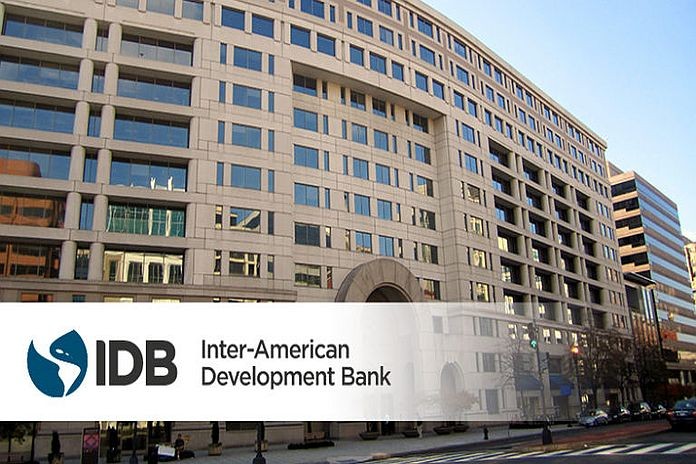CARTAGENA, Colombia – Inter-American Development Bank President Ilan Goldfajn called for greater collaboration between multilateral and public development banks to mobilize more resources towards the achievement of the sustainable development goals and addressing climate change during the Finance in Common Summit (FiCS).
Goldfajn highlighted that partnerships between these institutions are key to improving the global development financing architecture because they hold immense financial power. Multilateral Development Banks (MDBs) can help Public Development Banks (PDBs) align their activities with sustainable development objectives and promote financial innovation, which could drive positive change at an unprecedented scale. One of the main advantages of the PDBs is their capillarity – the last-mile reach and local expertise needed for tailored results.
“The great strengths of public development banks include filling market gaps by financing projects that may have great economic and social impact but do not meet the criteria of private investors. They also have the power to attract those investors with instruments to mitigate risks. Now, we must further develop our institutional strengths and come together more than ever to mobilize and channel resources to the areas that need it most,” Goldfajn said.
For the fourth consecutive year, over 500 Public Development Banks (PDBs) are gathered for FiCS to strengthen coordination and cooperation among them and with governments, international organizations, the private sector, and civil society to promote sustainable development and align financial flows with the 2030 Agenda and the Paris Agreement.
During the three-day Summit that started today, leaders of PDBs and MDBs will discuss their role in the international financial system and how to advance in constructing a common development financing agenda and strategy at a juncture of development challenges that call for urgent action.
Goldfajn said that innovative financial mechanisms will be essential for addressing complex challenges like climate change, poverty, and inequality, stressing that a great part of such innovation will come from the combination of instruments offered by MDBs and other development finance institutions and new partnerships to gain scale and effectiveness through a better use of synergies and know-how.
According to Goldfajn, FiCS has become a unique platform for the development finance community to build new alliances and find new ways to align on the major challenges and coordinate their work together to increase the scalability and effectiveness of their interventions.
For the first time, the Summit takes place in Latin America and the Caribbean, drawing attention to the significant financing gaps that the region faces in areas like SMEs and vulnerable populations’ financial inclusion, climate and biodiversity and sustainable infrastructure. It also draws attention to how Latin America’s unique challenges have prompted the region to seek innovative financial instruments and solutions hand in hand with MDBs that can be scalable and replicated in other parts of the world.
This year’s edition of FiCS is organized by Colombia’s business development bank (Bancóldex), the IDB, the Latin American Association of Development Finance Institutions (ALIDE) and CAF – the Development Bank of Latin America and the Caribbean. It is also supported by the FiCS General Secretariat, the Agence Française de Développement (AFD), the European Investment Bank (EIB) and the World Federation of Development Financing Institutions (WFDFI).





